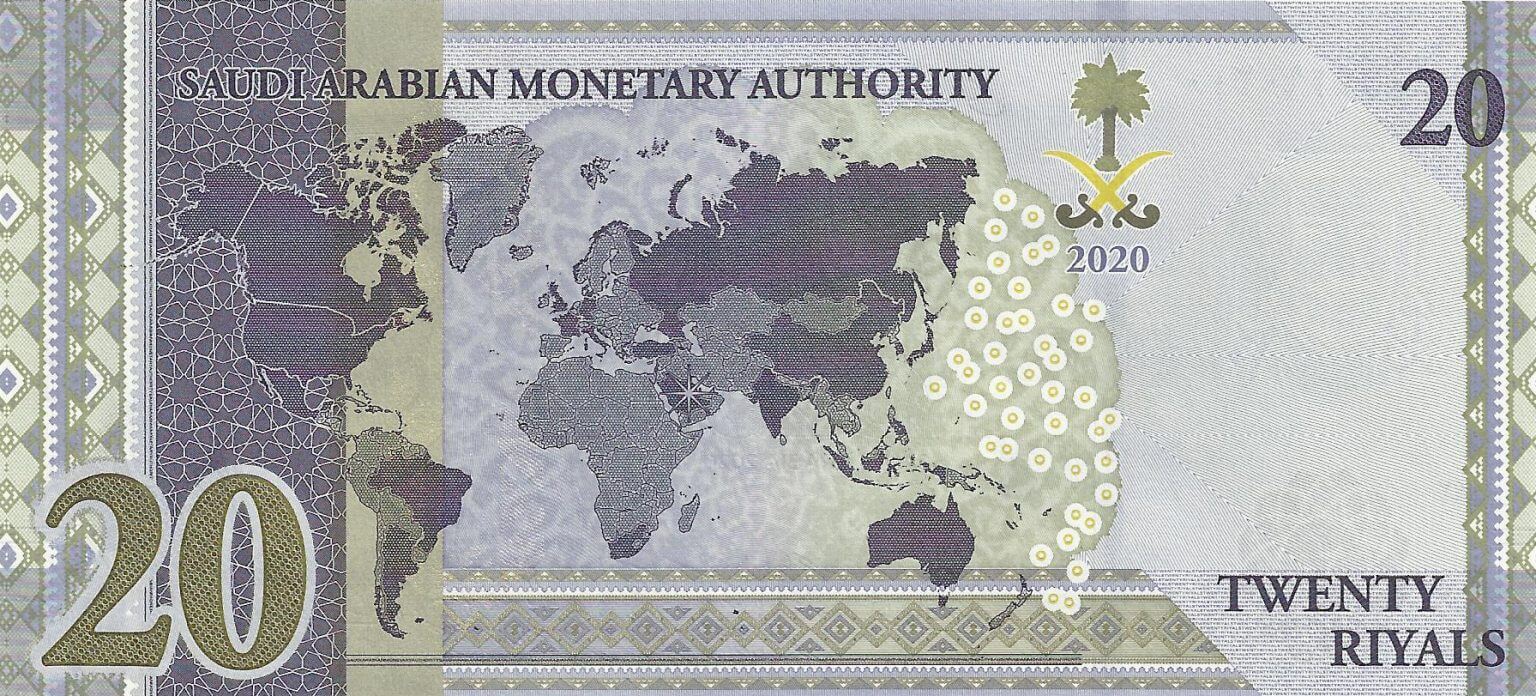On Wednesday, Saudi Arabia released a 20-riyal banknote in light of its upcoming presidency of the G-20 summit, scheduled for 21-22 November. The note shows a world map with members of the grouping highlighted in a darker shade. The map excludes Pakistan-occupied-Kashmir (PoK) and the Gilgit-Baltistan regions from Pakistan’s territorial area. While there has been no official statement from Islamabad, Amjab Ayub Mirza, a PoK activist, celebrated this move calling it a “Diwali gift” from Saudi Arabia to India.
However, New Delhi, a member of the G-20, lodged a formal protest against the released note with the Saudi embassy in India and the Kingdom’s foreign ministry since it also excluded the disputed territories of Jammu and Kashmir (J&K) and Ladakh from the area highlighted as its map. According to Indian officials, the map printed on the banknote distorts the Indian map, as its official position has always considered the J&K and Ladakh regions, including Gilgit-Baltistan, as integral parts of India. Riyadh is yet to comment on the issue. However, experts say that failure to address the matter and make necessary changes to the banknote could lead to India boycotting the meeting.
India’s friendship with the Arab kingdom has been flourishing over the past few years. Saudi Arabia is India’s fourth-largest trade partner, and apart from trading in crude oil, the two countries collaborate on several other fronts including defence and security. Further, in 2019, Indian Prime Minister Narendra Modi finalised the Strategic Partnership Council Agreement with Riyadh, which created a monitoring mechanism for bilateral developmental projects and initiatives, and has emerged as a crucial partner in Saudi Arabia’s “Vision 2030.”
On the other hand, earlier this year, relations between Riyadh and Islamabad took a turn for the worse when the Kingdom denied the South Asian country’s appeal to convene an Organisation of Islamic Cooperation (OIC) Council of Foreign Ministers meet to discuss the Kashmir issue. Consequently, Pakistan’s Foreign Minister, Shah Mahmood Qureshi, said, “If you cannot convene it, then I’ll be compelled to ask Prime Minister Imran Khan to call a meeting of the Islamic countries that are ready to stand with us on the issue of Kashmir and support the oppressed Kashmiris.” Qureshi’s statement was the spark that ignited tensions between Pakistan and Saudi Arabia. In November 2018, during Saudi Crown Prince Mohammed bin Salman’s diplomatic visit to Islamabad, the two countries had signed a $6.2 billion package that included $3 billion in fiscal loans and $3.2 billion in oil credit facilities. In retaliation to Qureshi’s statement, Saudi Arabia halted its oil supply and ended a financial loan deal with Pakistan. These developments also raise doubts about the future of 2019 MoUs signed between the two Islamic countries, which included Saudi investments in Pakistan valued at around $20 billion, including the setting up of an oil refinery in the port city of Gwadar, a strategic area at the crossroads of the Gulf of Oman and a crucial element of the China-Pakistan Economic Corridor (CPEC) project.
The Turkey factor also plays a crucial role in the increasing hostility between Pakistan and Saudi Arabia. Islamabad has been growing progressively closer to Ankara, who is opposing and threatening Riyadh’s position as the leader of the world’s Sunni community. Moreover, following the murder of Saudi journalist Jamal Khashoggi in the Kingdom’s consulate in Turkey, the relationship between the two powers has been drastically on the downfall. This has been worsened by the informal boycott on Turkish goods in Saudi Arabia. While official reports from both countries do not show a reduction in trade, reports suggest that Saudi officials are indirectly making it increasingly difficult to import Turkish products. An anonymous Saudi trader, speaking to Reuters, said that the release of Turkish products is delayed by customs officials for extended periods of time, adding that authorities had also informally warned him against importing Turkish goods. Additionally, on 10 October, several Turkish business owners came together and released a joint statement saying that they had been forced by the Saudi government to commit to discontinue exporting Turkish products to the Arab kingdom. Moreover, last week, the head of Saudi Arabia’s Chambers of Commerce, which is a private group of business officials, urged Saudi businessmen to boycott Turkish products in light of the growing animosity between the two countries.
Saudi Arabia Launches Note with Map Excluding Gilgit-Baltistan and Kashmir from Pakistan
While there has been no official statement from Islamabad, New Delhi has lodged a protest with Saudi Arabia since the map also excludes J&K and Ladakh from India’s borders.
October 29, 2020

SOURCE: DAILY TIMES
